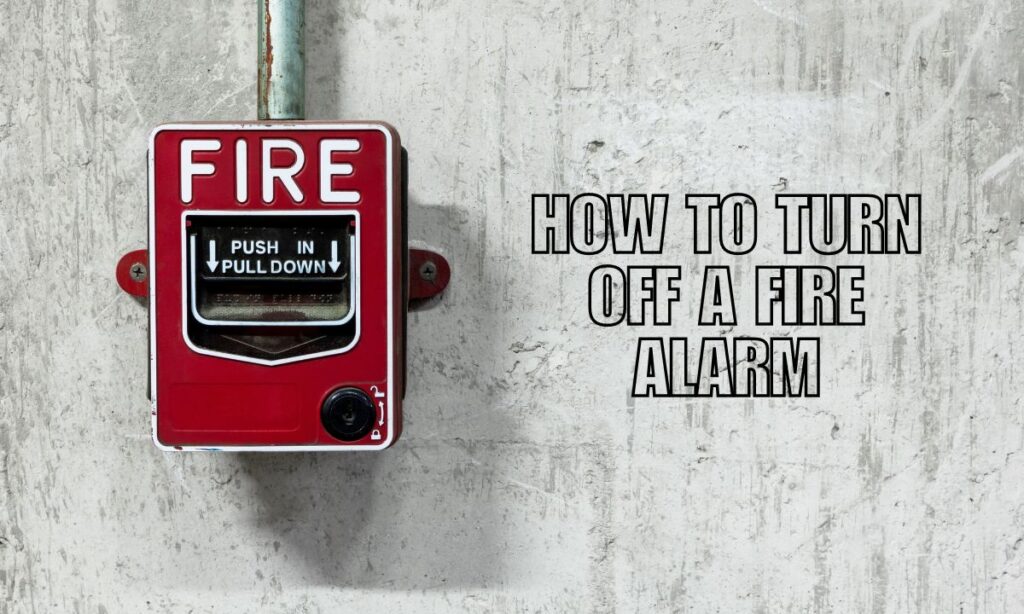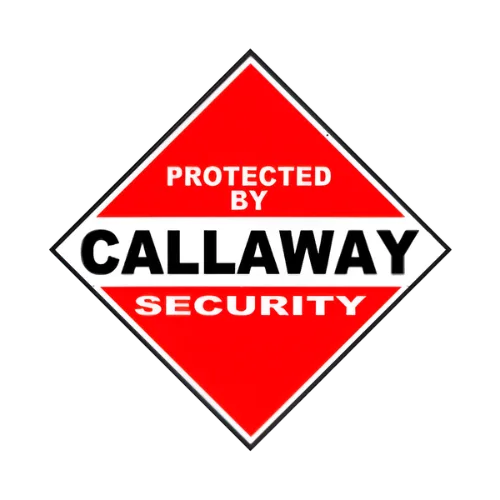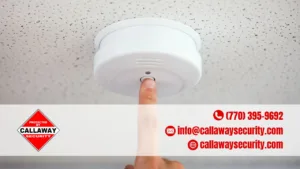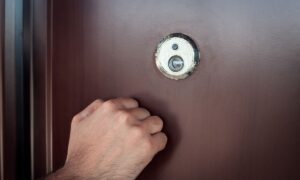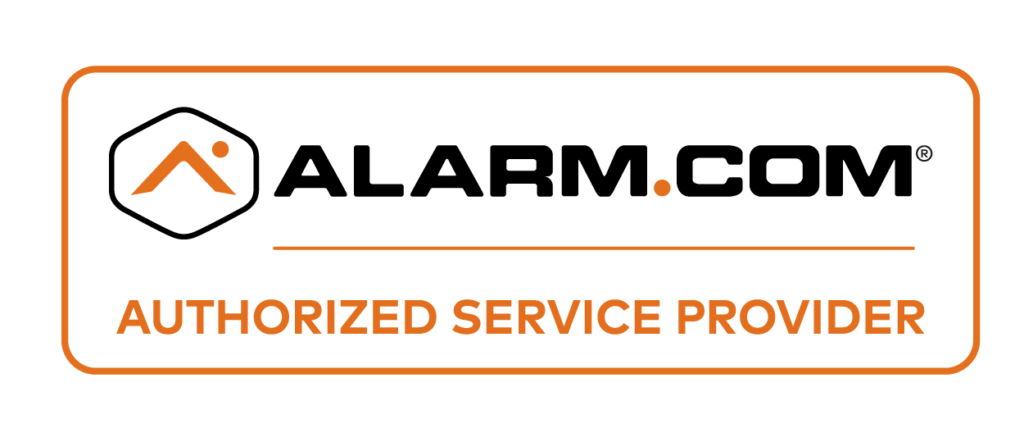We can turn off fire alarms using simple methods like pressing the silence button, removing batteries, or turning off power – but we must always check for real fire danger first.
Fire alarms keep us safe from house fires and smoke dangers. When these devices start beeping loudly, we need to act fast but stay calm. Maybe it’s just burnt toast causing trouble, or perhaps our detector needs some attention. Either way, knowing how to handle these situations helps us stay cool under pressure.
Key Takeaways:
- Check for real fire before turning off any alarm
- Most alarms have a silence button for quick relief
- Battery alarms need the battery taken out to stop completely
- Wired alarms require turning off power at the breaker box
- Smart alarms connect to phone apps for easy control
- Never leave alarms turned off for long periods
- Clean alarms regularly to prevent false alerts
- Commercial buildings need trained people to reset systems

Types of Fire Alarms in Your Home
Simple Battery Alarms
These are the most common alarms we see in houses. They run on regular 9-volt batteries and work by themselves. You can spot them easily – they look like small plastic circles on the ceiling with no wires showing.
When one of these starts going off, look for a button on the front or side. This silence button stops the noise for about 8 to 10 minutes. That gives us time to open windows and clear out any smoke or steam.
If the button doesn’t work or keeps going off, we’ll need to take out the battery. Just twist the alarm counter-clockwise to remove it from the ceiling, then pop out the battery.
Wired Alarms
These alarms plug into your house’s electrical system. They usually have backup batteries too, just in case the power goes out. You can tell these apart because they have wires going into the ceiling or wall.
Turning off wired alarms takes more steps. We need to find the right switch in the breaker box first. Then we can safely take the alarm down and disconnect the wires.
Smart Alarms
Modern smart alarms connect to your home’s Wi-Fi and send messages to your phone. Popular brands include Nest and First Alert. These fancy detectors often work together as a team throughout your house.
Most smart alarms let you turn them off using buttons on the device or through phone apps. Some companies don’t allow phone control for safety reasons though.
Easy Ways to Turn Off Your Alarm
Using the Silence Button
Quick Steps:
- Find the silence button (usually on the front)
- Press and hold for 3-5 seconds
- Listen for a beep to confirm it worked
- Wait 8-10 minutes – it stays quiet during this time
This method works great for cooking accidents or steam from hot showers. While the alarm stays quiet, open some windows or turn on fans to clear the air.
Taking Out the Battery
Sometimes we need to remove the battery completely. Here’s how we do it safely:
Step by Step:
- Twist the alarm counter-clockwise to take it down
- Look for arrows showing which way to turn
- Open the battery door
- Take out the battery
- Press the test button for 15-30 seconds
That last step is important – it drains any leftover power in the alarm.
Turning Off Wired Alarms
Wired alarms need extra care because they connect to electricity. Here’s the safe way:
What to Do:
- Go to your home’s breaker box
- Find the switch labeled for fire alarms
- Turn off that switch
- Go back and twist the alarm off its mount
- Gently pull apart the wire connections
- Remove any backup battery
- Press the test button to drain power
Always turn off the power first. This keeps us safe while working with electrical parts.
Dealing with Office Building Alarms
Control Panels
Big buildings use central control systems instead of individual alarms. These control panels show which area triggered the alarm and what’s happening with the system. You’ll usually find these panels near the main entrance or security desk.
When alarms go off in office buildings, the control panel tells us exactly which detector caused the problem. This helps building staff figure out what’s going on.
Who Can Reset These Systems
Only trained building staff should mess with commercial fire systems. These people know the building’s safety setup and understand all the rules and regulations.
The reset process involves checking what caused the alarm, making sure everything’s safe, and then clearing the alert through the control panel.
Stopping False Alarms Before They Start
Regular Care and Cleaning
Monthly Tasks:
- Clean detectors with a vacuum or compressed air
- Check that batteries still work
- Test the alarm button
Every 6 Months:
- Replace all batteries
- Check detector dates (replace after 10 years)
Every 3 Months:
- Test the whole system
Most false alarms happen because of dust buildup. A quick monthly cleaning prevents most of these annoying incidents.
Where to Put Your Alarms
Good placement prevents false alarms while keeping us protected. Put smoke detectors at least 10 feet away from the kitchen stove. Don’t put them too close to bathrooms where shower steam might set them off.
For ceiling alarms, stay at least 4 inches away from walls. Wall-mounted alarms should be 4-12 inches below the ceiling. This positioning helps them work right during real fires while avoiding false alerts.
Common Problems and Quick Fixes
That Annoying Chirping Sound
When alarms chirp every minute or so, it usually means the battery is getting weak. This happens even with wired alarms because they have backup batteries too.
Sometimes chirping happens because of dust or old age. Try cleaning first, but if your detector is over 10 years old, just replace the whole thing.
When Multiple Alarms Go Off Together
Some alarm systems connect together throughout the house. When one goes off, they all start making noise. To fix this, we need to find which one started the problem.
Look for flashing lights on each alarm – the one causing trouble usually blinks differently than the others.
Safety Rules to Remember
Check for Real Danger First
Before touching any alarm, make sure there’s no actual fire. Look around for flames, sniff for smoke, and feel doors to see if they’re hot. If anything seems wrong, get out of the house and call 911.
Real fires spread incredibly fast. When in doubt, evacuate first and worry about the alarm later.
Get Things Working Again Quickly
After we turn off an alarm for cleaning or false alerts, we need to get it working again soon. Leaving alarms off creates dangerous gaps in our fire protection.
Test every alarm after fixing it by pressing the test button. Do this monthly to make sure everything stays in good shape.
Questions People Often Ask
How long does the silence button work?
The silence button stops alarms for 8-10 minutes. If there’s still smoke in the air after that time, the alarm will start up again automatically.
Can I turn off connected alarms from just one spot?
Most connected systems let you silence all alarms from any single detector. Smart systems often let you control everything from your phone app.
Why do alarms always seem to chirp at night?
Cooler nighttime temperatures can make batteries seem weaker to the detector. That’s why low battery warnings often happen when we’re trying to sleep.
Is it okay to remove batteries for a little while?
We should never leave detectors without power for more than a few hours. If you have to remove batteries because of false alarms, put them back in as soon as possible.
How often should I change alarm batteries?
Change batteries every 6 months. Many people do this when clocks change for daylight saving time – it’s an easy way to remember.
Wrapping Up Your Fire Safety Knowledge
We’ve covered all the main ways to turn off fire alarms safely and effectively. These devices save lives and protect our homes, so we always need to treat them with respect and caution.
Whether we’re dealing with cooking smoke or doing regular maintenance, following the right steps keeps everyone safe. Good maintenance, smart placement, and understanding our alarm types helps us handle these situations like pros.
Fire alarms are one of the best investments we can make for home safety. By learning these techniques and keeping up with regular care, we can manage alarm problems confidently while keeping our families protected from fire dangers.
Remember, the primary goal is to protect lives and property. If you have any concerns or doubts regarding your fire alarm system, consult with Callaway Security to ensure its proper functionality and compliance with fire safety regulations.

